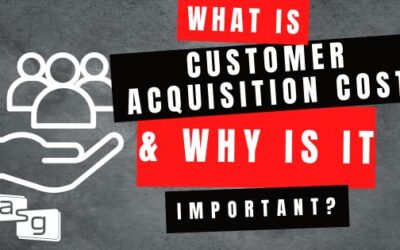Salespeople fail all the time. Depending on how you look at it, or who you ask, sellers fail more often than not.
They fail for 2 reasons, they fail themselves or the company fails them. This is how you’re failing yourself.
If you’re not a successful salesperson, I can guarantee you’ve done some or maybe even all of these things.
22 reasons you’re not a successful salesperson
1. You’re not making enough calls
The average cold call success rate is 2%. You need to make 100 calls to qualify 2 people as a lead. Your call numbers gotta be high if you’re going to be successful. It’s just math.
2. You haven’t learned your product
Good sellers are problem-solvers, it’ll be impossible to be a problem solver if you don’t know how a product solves a problem.
3. You don’t know the product well enough
Maybe you know the product, but how well? Do you understand how each feature solves a technical problem or root cause for your ICP? Can you have provide a proper recommendation or have a technical conversation with a buyer? You might not have too, but you should have the knowledge to if need be.
4. You lack business acumen
A high-level executive isn’t going to dumb down their talking points to accommodate you. Speak their language. Understand your industry trends, what issues arise in that industry, and why these issues are important to solve. Stand in their shoes and be a consultant.
5. You’re selling the features and benefits, not solving customer problems
Gap Selling 101 – features and benefits are useless without the context of a business problem. Features directly solve a technical problem, which is likely of little value to the customer. How that technical solution addresses a business problem, that’s the true sale.
6. You’re not listening
Are you listening to sell or listening to learn? More often than not sellers have a tendency to listen for trigger words where they can jump in and pitch their feature. Buyers hate that. You’ve disregarded everything else they said and just stuck to a single tidbit.
7. You don’t understand the value proposition of your solution
‘we help you do this faster’, ‘we do this better’, yeah, and? Faster and better are cool but what’s the actual, tangible value of your product? How much money are you saving the client? How many more paying customers are you generating? How many customers can they retain with your churn solution?
8. You can’t create a unique client specific value proposition
A restaurant that only has 20 seats doesn’t necessarily need more customers. They might need more mid-week lunch traffic though. Don’t address their capacity problems on weekends because that’s where your last couple sales came from. If they can improve their revenue on Tuesdays at 1 make sure your solution addresses Tuesdays at 1.
9. You complain about the product
Your product might suck. But you can’t change that. You can go find another gig, or you can fix the way, who, or where you’re selling. Complaining about a product, I promise, will get you no closer to your goals.
10. You complain about the lack of leads
It’s everyone else’s fault that you’re not going to hit your number huh? Have you closed all the leads you’ve been given? Have you closed most of them? Have you closed half of them? No? Then start at the beginning or go find some more. Go diagnose the lead issue instead of whining about it.
11. You’re wasting time on deals that won’t close
Hopium. You’ve got it bad. The prospect’s been dodging you, but they said once 6 months ago that they might be interested so you left it in your pipe. It’s not going to close, give it up and move on. Spend more time collecting information on deals that are still active.
12. You’re not reading sales blogs
Find some people in the industry you like and read everything they produce. Learn, learn, learn. There isn’t a single person in any industry that knows everything. The most successful people are continuously learning.
13. You don’t have a plan or your deal strategy sucks
You remember the scene in the Dark Knight where Heath Ledger says he’s like the dog chasing the car and he wouldn’t know what to do if he caught it? Don’t be that person. Have a defined plan for every step. How do you identify prospects? Where are you going to dig in first when you start a discovery? If they have a problem you can solve, how will the recommendation phase proceed? How will you follow up with prospects who you never hear from?
14. You aren’t utilizing the CRM
Discovery is a diagnosis. Diagnosis requires documentation. How will you remember the information from a discovery if you aren’t using a CRM? Additionally, how do you know what information is the most important distinction between deals that are won and lost. Today’s tech allows for countless variations of analysis, but it needs the data to work with. Use the damn CRM.
15. You don’t know your buyers journey
How does your buyer buy? What problem led them to reach out to you? How did they discover you? Who in the organization is involved with the problem?
16. You don’t read a book a month
See #12. Learn, learn, learn. There’s hundreds of books on selling, discovery, prospecting. Go read them. Take bits and pieces from each and see what works for you.
17. You don’t have a personal development plan
Where do you want to be? What do you want to accomplish? Do you have your daily, weekly, monthly, yearly goals written down? What strategies and tactics are you using to accomplish each goal? What steps are you taking? Have a plan and attack it.
18. You just can’t sell
Sales is hard. It’s rejection after rejection for a moment of celebration when we land a deal or exceed quota for a quarter. And then, we wipe the slate clean and start again. It’s a grind and some of us just can’t do it. That’s okay, go find something else you’ll better fit for.
19. You can’t identify the customer’s problems
If you can’t identify a customer’s problem, you need to take a step back. Buyers have the capability to google your features and benefits. They’re not interested in demonstrations about those. They’re looking for a solution to their problems. Increase your business acumen as it relates to your ICP’s industry. You’ll know you a problem expert when you can identify the problem, impact, and root causes in your prospect’s business.
20. You’re too busy building relationships
You do not need to be liked to be able to sell. The relationship between the buyer and you is irrelevant if the value is there. Think about your cousin’s Tupperware gig. You like your cousin, but you don’t need more Tupperware. On the flip side, think of the worst car salesman you could imagine. You don’t even want to step in the door of their dealership, but if that dealer is selling your dream car at a 50% discount, you’ll deal with it because the value is there.
21. You talk about yourself or the product too much
I don’t care about your product until you can demonstrate how it adds value to me or solves a problem. I, honestly, don’t want to hear about your product until you demonstrate this. The only reason I’m taking the call is because I believe there’s a good chance you can help me in some way. Don’t mention your product until you have a clear understanding of where it will solve a problem and the value has been developed.
22. You don’t work hard enough
How hard are you actually working? Are you reading a book a month? Are you making enough calls? Have you built a sequence for follow up? Are you spending day every week or so learning about your ICP? Are you tracking all of your activities and analyzing which ones make the greatest impact on your deals? If you’re failing, go find someone who is winning and outwork them.
Avoid these missteps
These are just a handful of the reasons salespeople don’t make their number. When we miss our number, we can start the blame with ourselves. Most of the reasons we miss quota start with us.
If you want to make your number, if you want to be the number one rep, do less of this stuff, and more of the good stuff.
Sales is dope profession because success is so uniquely tied to individual effort. Effort in, results out. Easy.








0 Comments